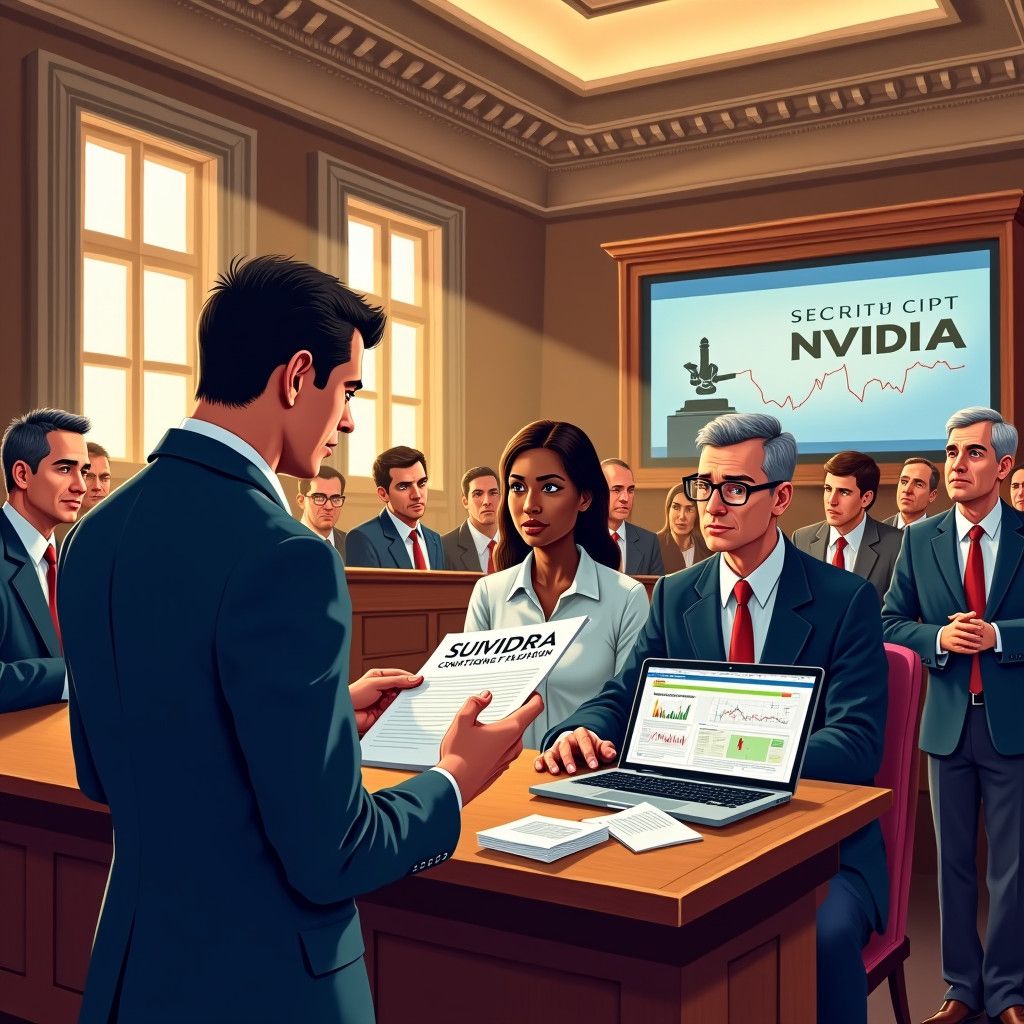The U.S. Supreme Court recently made a significant decision by declining to hear an appeal from Nvidia, the tech giant renowned for its innovations in graphics processing technology. This refusal pertains to a securities fraud case that has garnered attention not just for its implications on Nvidia, but also for the broader tech industry and its investors.
Background of the Case
The controversy began when several investors alleged that Nvidia misled them regarding the demand for its products during a critical growth period. The heart of the allegations lies in a statement made by Nvidia around 2016, during which the company claimed that its revenues were strongly driven by the demand for its graphics cards used in video gaming and cryptocurrency mining. However, the investors argued that Nvidia was not transparent about potential risks and knew that demand was declining in certain markets, hence portraying an overly optimistic financial outlook.
This lawsuit fell under the scrutiny of various courts before finally reaching the Supreme Court. The investors contended that Nvidia’s statements artificially inflated stock prices, impacting their investments when the truth eventually surfaced.
Implications of the Court’s Decision
By declining to hear Nvidia’s appeal, the Supreme Court effectively allows the lower court’s decision to stand. This ruling could set a precedent for how technology companies communicate with investors, particularly in periods of rapid innovation and market volatility. As technology companies increasingly face scrutiny over their public statements, this case underscores the accountability that leaders must bear regarding transparency with investors.
One viewpoint among legal analysts is that this outcome could potentially deter companies from making aggressive statements about future earnings or product demand unless they are fully substantiated. The decision could introduce a more cautious approach in corporate communications, particularly in an industry known for its dynamic changes and rapid growth.
Reactions from Stakeholders
Reactions to the Supreme Court’s decision varied among stakeholders. Investors who backed the case expressed a sense of validation, viewing the ruling as a necessary measure to promote corporate responsibility. They see it as a shield against companies misleading investors in pursuit of short-term goals.
On the contrary, some industry leaders and analysts worried that such legal precedents might hinder innovation by making companies overly cautious. The tech industry thrives on ambitious projections and innovative leaps, often taking substantial risks to achieve transformative breakthroughs. A chilling effect on communication could stifle the very boldness that drives technology forward.
Nvidia’s Response
In the wake of the court’s decision, Nvidia released a statement expressing disappointment but reaffirming its commitment to transparency and accuracy in its communications. The company indicated that it intends to continue providing stakeholders with comprehensive insights into its business performance and outlook. Nvidia’s representatives underscored their dedication to maintaining strong investor relations and adhering to the highest standards of disclosure.
Lessons for the Tech Industry
This case serves as a pivotal lesson for businesses within the tech sector. First and foremost, it highlights the crucial need for companies to cultivate a culture of transparency. With investors increasingly vigilant about how their money is managed, tech firms must find an equilibrium between excitement about future innovations and the responsibility that comes with public financial disclosure.
Furthermore, pragmatic communication strategies are essential. Companies should invest in robust investor relations teams to navigate complex narratives around growth forecasts, ensuring that expectations adequately reflect both opportunities and risks. As the landscape evolves, the ability to communicate effectively will be a defining factor for long-term success.
Conclusion
The Supreme Court’s decision to decline Nvidia’s appeal marks a significant moment in the intersection of technology, law, and finance. As companies navigate the complexities of investor relations, this case serves as a reminder of the importance of accountability and transparency. The influence of this ruling is likely to resonate throughout the tech industry, encouraging a shift towards more thoughtful and responsible communication practices—an evolution that benefits both investors and the companies they support.












